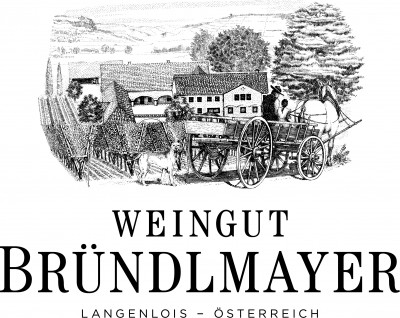Bründlmayer
About Bründlmayer

This is probably Austria’s number one estate outside the Wachau. If you are to believe former World Champion sommelier Andreas Larsson, Bründlmayer is in fact the nation’s finest, bar none. However you look at it, this is another one of the world’s top white winegrowers. The winery is situated in Langenlois, some 70 km northwest of Vienna, upstream along the Danube in the Lower Austrian Kamp Valley. The wooded hills of the Waldviertel protect the vineyards from the cold north-westerly winds. During the day, the sun warms the stony terraces, while at night the fresh, fragrant forest air drifts through the Kamp Valley into the Langenloiser Arena. The Kamptal is not far from the Wachau or Kremstal but it does throw up a whole different terroir and style mix. Grüner Veltliner and Riesling are still kings but there are no Federspiel/Smaragd categories. The wines of Bründlmayer are dry, mineral, powerful and harmonious.
Since 1980 this talented winemaker has transformed 125 acres of terraces, set above the Danube in Langenlois, into a beacon for Austrian wine. Jancis Robinson on Willi Bründlmayer.
About Willi Bründlmayer

“Since 1980 this talented winemaker has transformed 125 acres of terraces, set above the Danube in Langenlois, into a beacon for Austrian wine.” So wrote Jancis Robinson of Willi Bründlmayer, who inherited from his father a love and respect for nature that has become more profound through travels to other major winegrowing regions of the world. Only organic fertilisers such as composted vegetable matter are used in the estate’s vineyards. Ecological harmony has absolute priority here: when old vineyards are grubbed up they are left fallow for five years before replanting so that the soil can regain its natural fertility; clover and wild herbs regenerate it and create an ideal meadow habitat for bees and butterflies. To prevent erosion, water sumps have been created at regular intervals, which also help to improve the micro-climate. Willi never uses herbicides to control the growth of weeds. Thanks to him, the family name has become synonymous with reliable, top-quality Austrian winemaking, making some of the very best wines the country has to offer. At the turn of the millennium, Decanter magazine cited Willi among the 50 most likely people to change the face of the world of wine in the coming decades, which goes some way to demonstrating the esteem in which he is held at home and in the broader world of wine.

